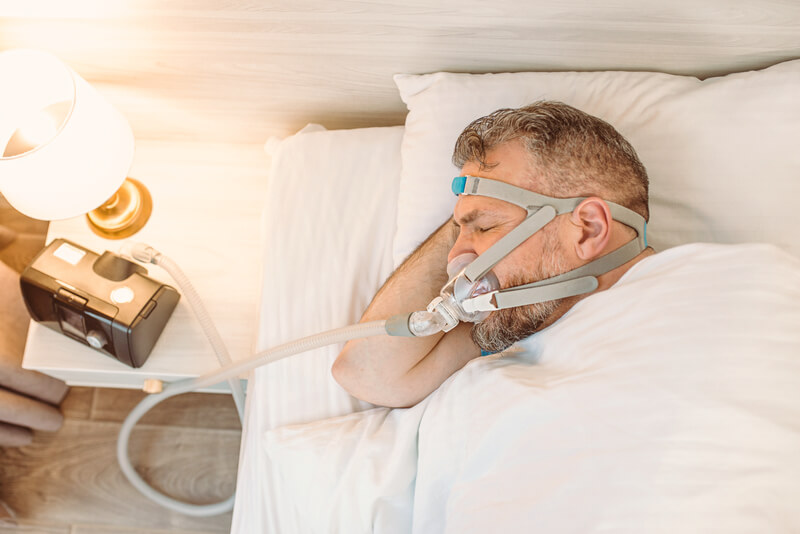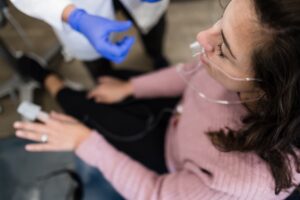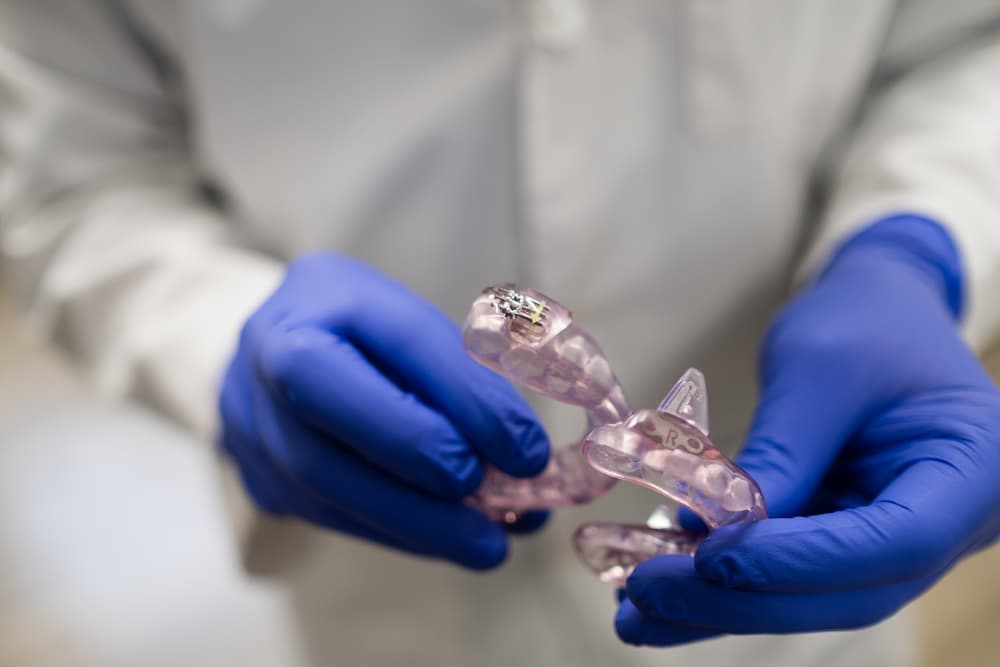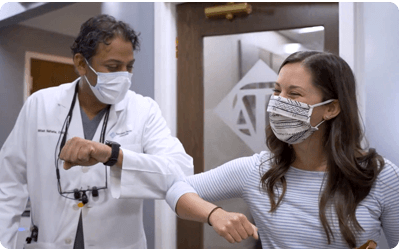What is Sleep Apnea?

It is estimated that 18 million Americans suffer from obstructive sleep apnea (OSA). According to the Mayo Clinic, sleep apnea is a potentially serious sleep disorder that causes your breathing to repeatedly stop and start while you sleep. This reduces the amount of oxygen in your blood, which means your heart has to pump faster in order to deliver the correct amount of oxygen to your other organs. The problem? Your heart is one of those organs, and it is working even harder but getting less oxygen! A faster heartbeat means an increased blood pressure, which in turn creates or contributes to more serious problems such as coronary artery disease, congestive heart failure, atrial fibrillation and stroke.
People with obstructive sleep apnea are never fully rested because they cannot get a full night’s sleep. Air struggles to get through the airways as they constrict and snoring occurs when air is forced through obstructed passages. The obstruction usually results from a seal made by the back of the tongue and the soft palate. When you lie on your back and fall into a deep sleep, your tongue can relax, fall backwards, and create this obstruction. OSA causes your breaths to become shallow and you may even stop breathing multiple times in an hour each night. Many people with obstructive sleep apnea aren’t aware that they are briefly awoken many times at night to consciously start to breathe again. OSA can affect people of all ages including young children.
What are Common OSA Symptoms?
- Excessive daytime sleepiness
- Loud snoring
- Observed episodes of stopped breathing during sleep
- Abrupt awakenings accompanied by gasping or choking
- Awakening with a dry mouth or sore throat
- Morning headache
- Difficulty concentrating during the day
- Experiencing mood changes, such as depression or irritability
CPAP vs Dental Device Therapy
What is a CPAP?
The CPAP is a mechanical apparatus that is worn at night to improve a person’s quality of breathing. CPAP stands for “Continuous Positive Airway Pressure.” A pump generates pressurized air which flows through a tube into a mask you wear over your nose and/or mouth while you sleep. The machine increases pressure in your airways which helps push obstructions open and allows air to travel through them more effectively. Up to 40% of people who try a CPAP machine don’t stick with it. Many people who are not compliant with their doctor-recommended CPAP treatment find that the tubing gets in their way as they sleep, the mask makes them feel claustrophobic, or the sound from the machine is disruptive to them or their partner. A CPAP machine is still the most prescribed therapy option for OSA.
How We Can Help You

Oral appliances can be an alternative treatment for many patients who can’t use, or don’t want to use CPAP therapy. Any kind of dental device to be used for treating OSA should be designed by a qualified dentist. At TDA we will evaluate your symptoms and the unique issues you have related to your sleep disorder and customize a dental device that is right for you. Since your tongue is connected to your lower jaw, by holding your lower jaw in a forward position, these devices can help keep your airway open during sleep. In many mild to moderate cases of OSA a dental device can be a more comfortable and effective treatment method when customized for you in our office.
A dental device is small and portable, which makes it an excellent option for OSA patients who travel a lot. In cases where oral appliance therapy is not sufficient on its own to alleviate your symptoms, it can be a great adjunct to CPAP. Many patients that can’t tolerate CPAP complain of the high pressure required to keep their airway open, which in turn requires a very tight seal on the face mask—if an oral appliance can help open the airway a bit, that pressure can be greatly reduced, making CPAP much more comfortable.

Finding out more about how dental devices, or an oral appliance, works is a great way to understand your OSA better and learn how to manage it. Our doctors can evaluate which type of oral appliance might benefit you. A TDA sleep consultation appointment helps us learn more about you and your symptoms. Oral sleep appliances can be quite effective in helping people with sleep apnea; they are primarily recommended for patients who have been diagnosed with mild to moderate sleep apnea. If you, or someone you love, is experiencing symptoms of OSA please give our office a call. We are here to help!






